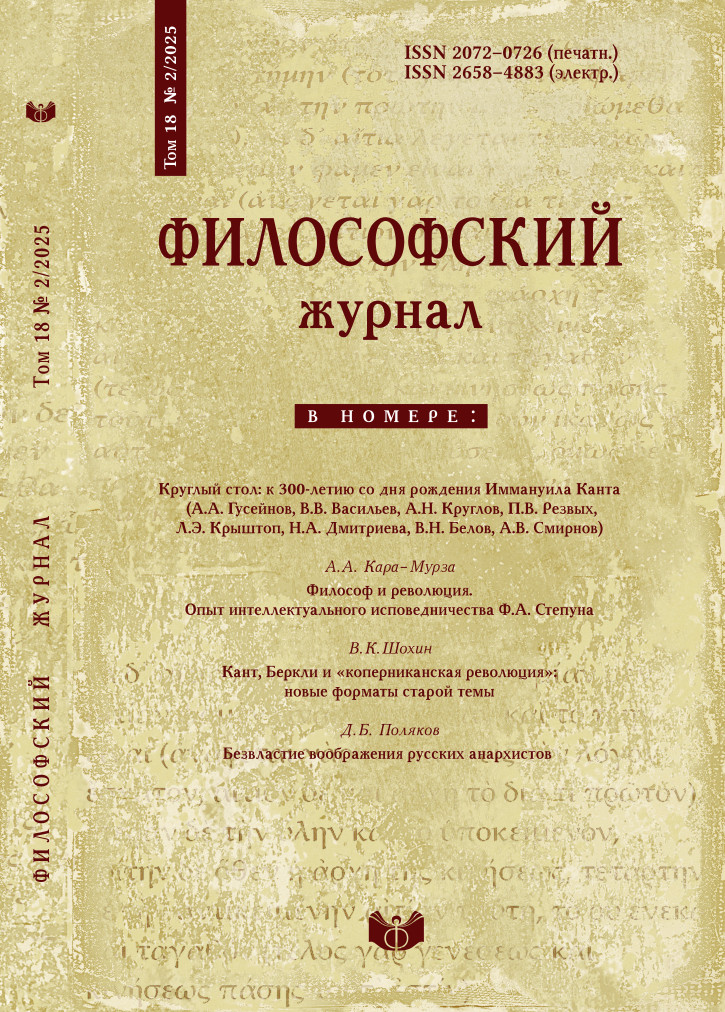The “light” and “darkness” of Kant and Kant studies
DOI:
https://doi.org/10.21146/2072-0726-2025-18-2-23-33Keywords:
Kant, Kantian studies, Russian Kant Studies, mankind, humanity, Russian literature, Kant’s translationsAbstract
In the anniversary year of 2024, the question has repeatedly arisen regarding the reasons for turning to I. Kant and maintaining interest in his philosophy. First, Kant has long been an integral element of Russian culture, and as a historical figure he continues to captivate the general public. Second, Kant holds a central position in the modern philosophical tradition, which cannot be overlooked by those who align with its basic principles and assumptions. Kant, as a philosopher, presents several “illuminating” aspects: his understanding of individual dignity, his “redemption” of human freedom, his critical method, and his reflection on the potential and limits of human cognition. However, the “darker” aspects of Kantian philosophy include such issues as his problematic views on race, his segregationist interpretation of “mankind”, and his stance on the role and suffrage of women. Kant studies, as a specialized branch of historical and philosophical scholarship, has achieved remarkable progress in clarifying various Kantian positions. Examples of groundbreaking contributions include the works of G. Tonelli, N. Hinske, and W. Stark. Nevertheless, the immense volume of research literature on Kant makes comprehensive navigation challenging. Additionally, the increasing Anglicization of contemporary Kant studies has marginalized significant contributions in other languages. Despite the extensive translation efforts of Russian Kant studies, a noticeable number of translation issues have accumulated in Kant’s Russian-language texts. Cooperation with translators of Kant’s works into other Slavic languages could serve as an underutilized resource for further improving the quality of Kant’s translations into Russian.






